BMW iX1 vs Hyundai IONIQ 6 - Differences and prices compared
Compare performance (313 HP vs 650 HP), boot space and price (41800 £ vs 37600 £ ) at a glance. Find out which car is the better choice for you – BMW iX1 or Hyundai IONIQ 6?
Costs and Efficiency:
Looking at overall running costs, both models reveal some interesting differences in everyday economy.
Hyundai IONIQ 6 has a somewhat advantage in terms of price – it starts at 37600 £ , while the BMW iX1 costs 41800 £ . That’s a price difference of around 4200 £.
In terms of energy consumption, the advantage goes to the Hyundai IONIQ 6: with 13.90 kWh per 100 km, it’s a bit more efficient than the BMW iX1 with 15.80 kWh. That’s a difference of about 1.90 kWh.
As for electric range, the Hyundai IONIQ 6 performs evident better – achieving up to 614 km, about 151 km more than the BMW iX1.
Engine and Performance:
Under the bonnet, it becomes clear which model is tuned for sportiness and which one takes the lead when you hit the accelerator.
When it comes to engine power, the Hyundai IONIQ 6 has a significantly edge – offering 650 HP compared to 313 HP. That’s roughly 337 HP more horsepower.
In acceleration from 0 to 100 km/h, the Hyundai IONIQ 6 is decisively quicker – completing the sprint in 3.20 s, while the BMW iX1 takes 5.60 s. That’s about 2.40 s faster.
In terms of top speed, the Hyundai IONIQ 6 performs evident better – reaching 257 km/h, while the BMW iX1 tops out at 180 km/h. The difference is around 77 km/h.
There’s also a difference in torque: Hyundai IONIQ 6 pulls evident stronger with 770 Nm compared to 494 Nm. That’s about 276 Nm difference.
Space and Everyday Use:
Beyond pure performance, interior space and usability matter most in daily life. This is where you see which car is more practical and versatile.
Both vehicles offer seating for 5 people.
In curb weight, Hyundai IONIQ 6 is slight lighter – 1850 kg compared to 1940 kg. The difference is around 90 kg.
In terms of boot space, the BMW iX1 offers to a small extent more room – 490 L compared to 401 L. That’s a difference of about 89 L.
When it comes to payload, BMW iX1 a bit takes the win – 495 kg compared to 430 kg. That’s a difference of about 65 kg.
Who wins the race?
The Hyundai IONIQ 6 proves to be leaves the rival little chance and therefore becomes our DriveDuel Champion!
Hyundai IONIQ 6 is the better all-rounder in this comparison.
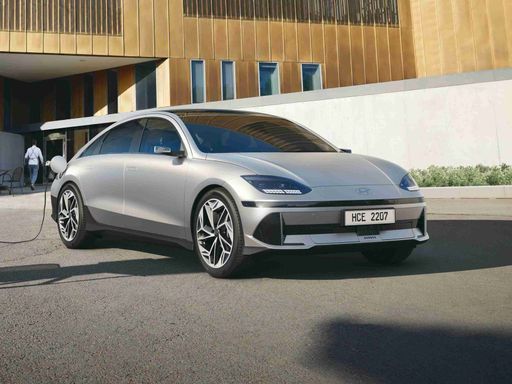
Hyundai IONIQ 6
Costs and Consumption
View detailed analysis
Engine and Performance
View detailed analysis
Dimensions and Body
View detailed analysis
BMW iX1
The BMW iX1 wraps BMW's electric ambition into a compact SUV package that feels unexpectedly premium, with sharp handling and a crisp, modern cabin that keeps the driver in charge. It's ideal for buyers who want a stylish, quiet daily driver with useful practicality and tech-savvy touches — plus enough character to make the commute feel less like a chore and more like a short joyride.
details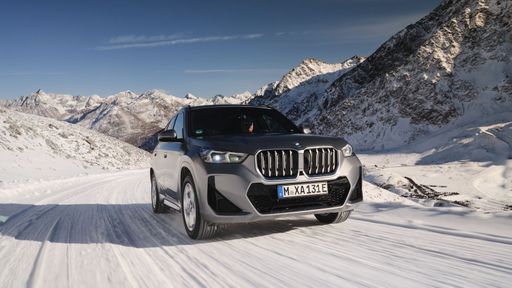
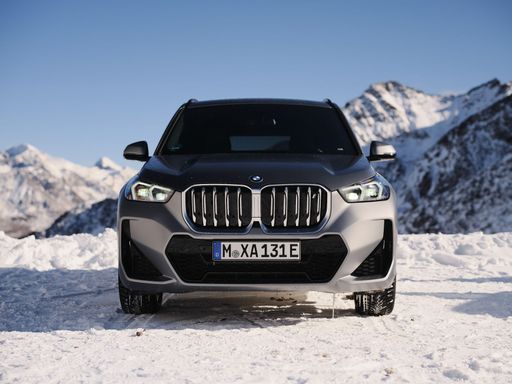
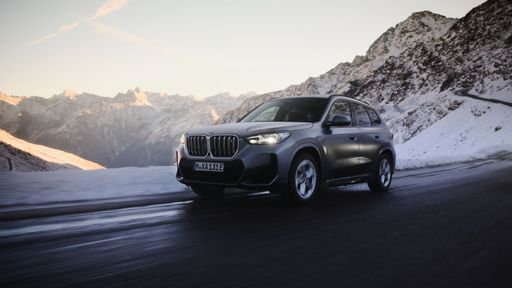
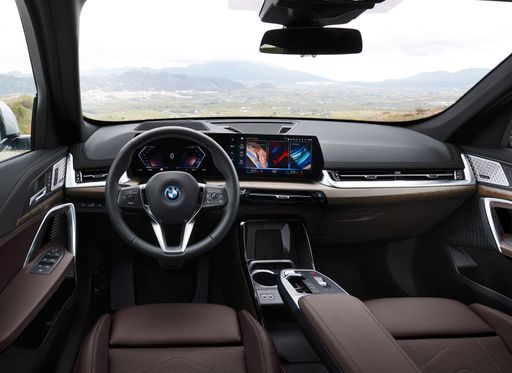
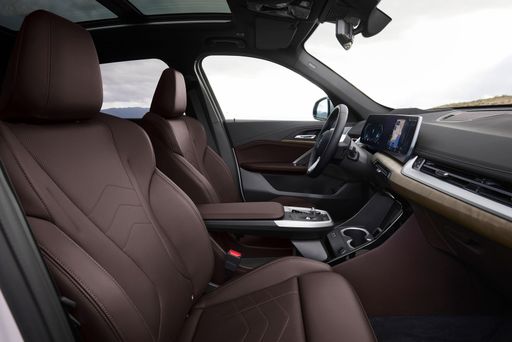
Hyundai IONIQ 6
The Hyundai IONIQ 6 glides down the road with a poise that feels more runway model than commuter car, its sleek silhouette promising efficiency without trying too hard. Inside, a calm, minimalist cabin packed with clever, usable tech makes it a compelling choice for buyers who want electric motoring that's smart, stylish and quietly practical.
details
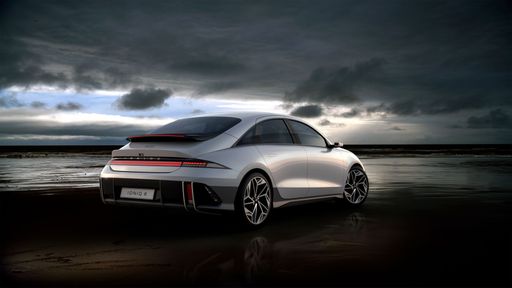
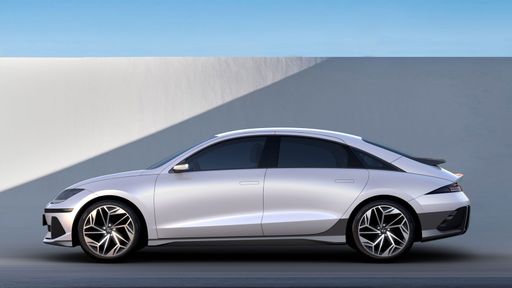
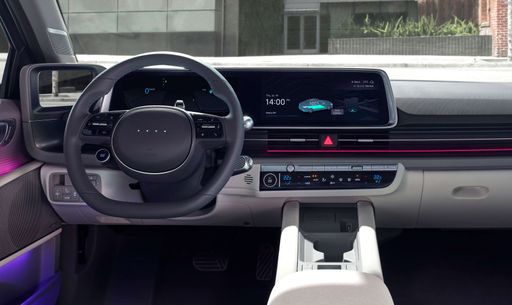
Costs and Consumption |
|
|---|---|
|
Price
41800 - 54600 £
|
Price
37600 - 64300 £
|
|
Consumption L/100km
-
|
Consumption L/100km
-
|
|
Consumption kWh/100km
15.8 - 17.1 kWh
|
Consumption kWh/100km
13.9 - 15.1 kWh
|
|
Electric Range
436 - 463 km
|
Electric Range
429 - 614 km
|
|
Battery Capacity
64.80 kWh
|
Battery Capacity
53 - 84 kWh
|
|
co2
0 g/km
|
co2
0 g/km
|
|
Fuel tank capacity
-
|
Fuel tank capacity
-
|
Dimensions and Body |
|
|---|---|
|
Body Type
SUV
|
Body Type
Hatchback
|
|
Seats
5
|
Seats
5
|
|
Doors
5
|
Doors
4
|
|
Curb weight
1940 - 2085 kg
|
Curb weight
1850 - 2095 kg
|
|
Trunk capacity
490 L
|
Trunk capacity
401 L
|
|
Length
4500 mm
|
Length
4855 - 4935 mm
|
|
Width
1845 mm
|
Width
1880 - 1940 mm
|
|
Height
1616 mm
|
Height
1495 mm
|
|
Max trunk capacity
1495 L
|
Max trunk capacity
-
|
|
Payload
495 kg
|
Payload
425 - 430 kg
|
Engine and Performance |
|
|---|---|
|
Engine Type
Electric
|
Engine Type
Electric
|
|
Transmission
Automatic
|
Transmission
Automatic
|
|
Transmission Detail
Reduction Gearbox
|
Transmission Detail
Reduction Gearbox
|
|
Drive Type
Front-Wheel Drive, All-Wheel Drive
|
Drive Type
Rear-Wheel Drive, All-Wheel Drive
|
|
Power HP
204 - 313 HP
|
Power HP
151 - 650 HP
|
|
Acceleration 0-100km/h
5.6 - 8.6 s
|
Acceleration 0-100km/h
3.2 - 8.8 s
|
|
Max Speed
170 - 180 km/h
|
Max Speed
185 - 257 km/h
|
|
Torque
250 - 494 Nm
|
Torque
350 - 770 Nm
|
|
Number of Cylinders
-
|
Number of Cylinders
-
|
|
Power kW
150 - 230 kW
|
Power kW
111 - 478 kW
|
|
Engine capacity
-
|
Engine capacity
-
|
General |
|
|---|---|
|
Model Year
2022 - 2023
|
Model Year
2022 - 2025
|
|
CO2 Efficiency Class
A
|
CO2 Efficiency Class
A
|
|
Brand
BMW
|
Brand
Hyundai
|
Is the BMW iX1 offered with different drivetrains?
The BMW iX1 is available as Front-Wheel Drive or All-Wheel Drive.




